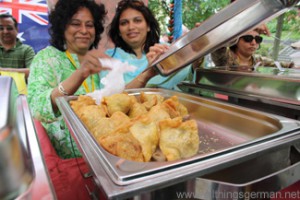 The German school system has, on the face of it, a fairly simple marking arrangement. The marks for a piece of work are given on a scale of 1 to 6, with 1 being the highest and 6 the lowest.
The German school system has, on the face of it, a fairly simple marking arrangement. The marks for a piece of work are given on a scale of 1 to 6, with 1 being the highest and 6 the lowest.
The numbers 1 to 6 roughly correspond to A to F in the British system as well, although 5 is usually the lowest that will be given for anyone actually completing the work or a test, with 6 reserved for those who don’t do it at all. There are also the + and – grades in-between.
But how do the marks get decided for each child in the first place?
One possible answer to that question, and probably the most plausible in many subjects, is be the teacher making the decision. This does, of course, require a competent and fair teacher, but [Read more…]
 When I hear the term “parent’s evening” in English, it conjures up an image of parents talking at tables to teachers about their children’s progress at school. But the German translation, Elternabend, means something completely different – as I quickly learnt when my daughter
When I hear the term “parent’s evening” in English, it conjures up an image of parents talking at tables to teachers about their children’s progress at school. But the German translation, Elternabend, means something completely different – as I quickly learnt when my daughter 
